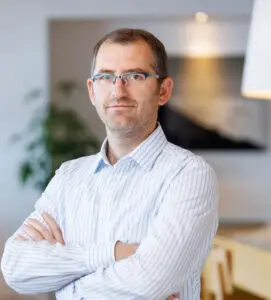Empowering Kosovo: The FEGO project for sustainable employment and growth

The FEGO project aims to generate employment and income for women, men, and youth, presently living in poverty and socio-economic marginalization. The project seeks to achieve sustainable and scalable growth of micro/small (family) businesses and start-ups in three main sectors: apparel, furniture, and rural tourism. The FEGO project aspires to bring about lasting structural changes in the market systems for the three focused sectors, with a high potential for employment and income generation for its target group.
FEGO aims to boost and contribute to more inclusive market systems through project interventions offering the chance to economically and socially disadvantaged people to improve their lives on their own initiative. Thus, the FEGO project serves the economic development of Kosovo within the Education & Science industry.
The apparel industry in Kosovo has experienced significant growth and development over the years. The sector plays an important role in the country’s economy, contributing to employment, exports, and investment. Within this context, the Fostering Employment and Growth Opportunities (FEGO) project, implemented by Swisscontact and financed by the Swedish International Development Cooperation Agency (SIDA), aims to drive sustainable and inclusive economic development by generating employment and income for individuals living in poverty and socio-economic marginalization.
By adopting a Market Systems Development (MSD) approach, the project facilitates market facilitation through innovative business models, thereby ensuring sustainable and scalable growth in these sectors. In line with its objectives, FEGO recognizes the importance of strengthening the knowledge and skills of MSMEs in the apparel industry to capitalize on existing market opportunities and overcome challenges.
Tasks
The tasks in the project are interrelated and built upon each other to ensure a comprehensive and effective implementation of the “Coaching and Mentoring for Growth” program.
TASK 1 involved the pre-design of the program, the selection of MSMEs, and the needs assessment of the selected MSMEs. For TASK 2, the team analyzed the findings from the needs assessment in TASK 1 and finalized the module program. This process involved revising, updating, and customizing the program to address the specific needs and requirements of the selected MSMEs.
Once the module program is finalized, TASK 3 focused on the actual implementation of the “Coaching and Mentoring for Growth” program. This included group and 1:1 coaching sessions tailored to the needs of the MSMEs in both Group A and Group B.
Throughout the entire project, TASK 4 involved monitoring the impact of the implementation activities. This continuous monitoring allows for adjustments and improvements, ensuring the program’s effectiveness and maximizing support for the MSMEs.
Key activities and results
A comprehensive outreach effort was undertaken, involving communication with a total of 230 businesses through various channels such as phone calls, emails, and social media. Out of these 230 businesses, 54 have been successfully engaged and have demonstrated their readiness and willingness to participate in our upcoming training sessions.
The “Mentoring and Coaching for Growth” program consisted of group coaching sessions and one-on-one coaching to support the development of the selected MSMEs.
The approach for Group Coaching was executed as follows.
Group Formation
The participating MSMEs were divided into two groups, Group A and Group B, based on the stage of business development. Each group was further divided into 5 subgroups, including at least 5 MSMEs in each sub-group, attended three-day coaching sessions with sufficient time for comprehensive training, discussions and interaction.
Participation
During the group coaching sessions, 43 companies participated, with 24 in Group A (0-5 years) and 19 in Group B (5+ years).
Modules
Group A: The coaching sessions focused on training topics such as management and daily operations, e- commerce, growth planning, and reaching potential investors. These topics have been specifically chosen to address the needs of recently established MSMEs based on the Needs Assessment report done as part of Task 1.
Group B: The coaching sessions focused on training topics such as growth planning, accessing new markets and financing opportunities, and diversifying products. The coaching sessions will provide in- depth insights, strategies, and best practices relevant to the specific needs of Group B MSMEs.
Results
A Festive Atmosphere of Accomplishments: The ambiance of the event resonated with a sense of accomplishment as participants shared their success stories, lessons learned, and triumphs achieved throughout the program.
Visibility and Opportunities: MSME visibility was increased, their accomplishments were recognized, and the spotlight on their endeavors opened doors to new opportunities, collaborations, and potential partnerships.
Peer Learning and Networking: The event facilitated peer learning and networking—a space where participants could exchange insights, strategies, and innovative approaches. The collaborative spirit in the room fostered an environment of shared knowledge, enabling each business to benefit from the collective wisdom of the group.
Inspiring Future Growth and Innovation: The insightful discussions, expert-led sessions, and shared experiences have equipped these MSMEs with the tools and insights needed to navigate the evolving landscape of the industry successfully.
Building Lasting Relationships: Participants had the opportunity to create connections and expand their network for long-term partnerships. The networking sessions provided a forum for discussions that extended beyond the event, paving the way for ongoing collaboration and shared success.
- 70% of the surveyed businesses have been in the market for less than 5 years.
- 60% of the surveyed businesses are in the early stages of the business.
- 37% are in the ready-to-wear clothes sector.
- 32% are in the gowns and dresses sector.
- The other 30% are in the accessories sector, 1% includes other sectors.
- Growth planning, business scaling and networking was the biggest challenge the surveyed businesses face in their industry.
- The second biggest challenge was the: access to finance and financing opportunities.
- Finding new markets and networking was the most selected area where they need support or guidance with 55% of answers.
- 35% of businesses answered that their business growth expectations for the next 2-3 years are entering new markets.
- Other topics that the surveyed businesses would like to be addressed during the trainings are: materials of clothes, cooperation between local and international organizations focused on fashion, e-commerce, finances and client relations, internet scams, success stories, price adjustment, financial and market stability, being relevant in the market, marketing and sales strategy, expansion and wholesale.


